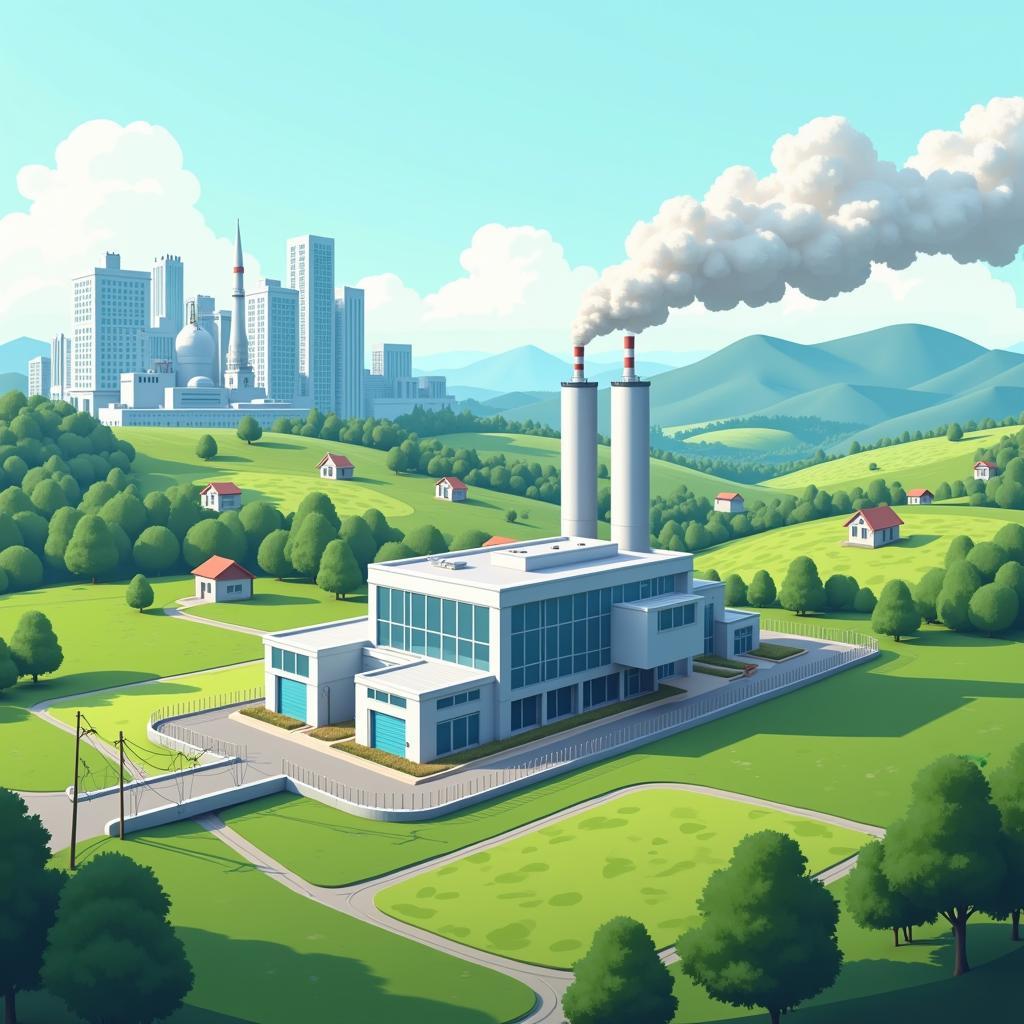The topic of relocating factories to rural areas has appeared multiple times in IELTS Writing Task 2 exams, particularly in 2019-2023. Based on analysis of past exam questions, this theme commonly emerges in Advantages/Disadvantages or Discussion essays. Let’s examine one frequently encountered question type.

Question Analysis
Some people think that factories should be relocated from cities to rural areas. Do you think the advantages outweigh the disadvantages of this development?
This question requires evaluating whether moving factories from urban to rural locations offers more benefits than drawbacks. A well-structured response should:
- Clearly state your position
- Discuss both advantages and disadvantages
- Provide relevant examples
- Conclude with a justified opinion
Band 8 Sample Essay
Similar to discussions about why eco-friendly transportation should be prioritized, the relocation of factories to rural areas presents both opportunities and challenges. However, I firmly believe that the advantages significantly outweigh the disadvantages.
The primary benefits of moving factories to rural areas are substantial. Firstly, this relocation would help reduce urban pollution and congestion, improving city dwellers’ quality of life. Additionally, it would create employment opportunities in rural regions, potentially stemming the tide of rural-urban migration. For instance, when Samsung established manufacturing facilities in Vietnam’s rural provinces, it generated thousands of jobs and stimulated local economic growth.
However, certain drawbacks cannot be ignored. The main concern is the potential environmental impact on previously pristine rural areas. Furthermore, rural infrastructure might initially struggle to support large-scale industrial operations. Yet, these challenges can be mitigated through proper planning and environmental regulations.
The advantages clearly supersede these disadvantages. Rural industrialization, when properly managed, can drive balanced regional development. It can transform struggling rural economies while simultaneously relieving pressure on overcrowded cities. The success of China’s Township and Village Enterprises (TVEs) demonstrates how rural industrialization can contribute to nationwide economic growth.
Therefore, while acknowledging the challenges, I maintain that relocating factories to rural areas brings more benefits than drawbacks, particularly in terms of sustainable development and economic equity.
Band 6.5 Sample Essay
In my opinion, moving factories from cities to rural areas has more advantages than disadvantages.
The main advantage is that it helps rural people get jobs. Many people in villages have no work and move to cities, but if factories come to their area, they can work there. Also, cities will become less crowded and less polluted when factories move away. For example, in my country, when some factories moved to villages, the air in the city became cleaner.
However, there are some problems too. Rural areas may not have good roads and electricity for factories. Also, some villages might get polluted because of the factories. Sometimes villagers don’t like big changes in their area.
But I think the good things are more important. When factories move to rural areas, the whole country can develop better. Poor people can get jobs near their homes and cities can become cleaner. Many countries have shown that this is a good idea.
In conclusion, although there are some problems, moving factories to rural areas is better because it helps both city and village people.
Analysis of Band Scores
Band 8 Essay Analysis
- Task Response (Band 8): Clear position, well-developed arguments
- Coherence & Cohesion (Band 8): Logical organization, effective paragraphing
- Lexical Resource (Band 8): Sophisticated vocabulary usage
- Grammar (Band 8): Complex structures, minimal errors
Band 6.5 Essay Analysis
- Task Response (Band 6.5): Basic development of ideas
- Coherence & Cohesion (Band 6.5): Simple but clear organization
- Lexical Resource (Band 6): Limited but adequate vocabulary
- Grammar (Band 6.5): Mix of simple and complex structures
Key Vocabulary
- relocation (n) /ˌriːləʊˈkeɪʃn/ – the act of moving to a new place
- infrastructure (n) /ˈɪnfrəstrʌktʃə/ – basic physical systems of a country
- pristine (adj) /ˈprɪstiːn/ – in its original condition; unspoiled
- supersede (v) /ˌsuːpəˈsiːd/ – replace or overcome (something)
- industrialization (n) /ɪnˌdʌstriəlaɪˈzeɪʃn/ – development of industries
- mitigate (v) /ˈmɪtɪɡeɪt/ – make less severe or serious
- congestion (n) /kənˈdʒestʃən/ – overcrowding or traffic
Conclusion
For future practice, consider these related topics:
- Environmental impact of industrial relocation
- Rural development through industrialization
- Urban-rural migration patterns
Share your practice essays in the comments section for feedback and improvement suggestions.